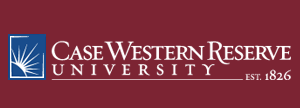A new Arts and Sciences initiative is enabling students to attend overseas lectures and symposia, participate in seminars with peers at foreign universities, and engage in other international learning experiences via webcast or videoconference.
Established with a three-year grant from the McGregor Fund, A World-Wide Learning Environment (WLE) encourages Arts and Sciences faculty members to develop courses that connect undergraduates with fellow students and with scholars around the globe. Grant monies may be used for advance trips to establish or sustain international collaborations, for visits by international scholars serving as lecturers or co-teachers, and for an array of technology-based interactions.

John Grabowski and his students
before the Blue Mosque in Instanbul,
Turkey. Front row, from left:
Adam Rupe, Katherine Disimoni,
Ryan Kelley. Second row, from left:
Mieon Han, John Grabowski, Alice Warner,
and Ciera Herron.
One of the first faculty members to seize this opportunity was John Grabowski, Krieger-Mueller Associate Professor in Applied History and director of research at the Western Reserve Historical Society. WLE offered Grabowski a new path toward a longtime goal: establishing academic and cultural exchanges between Case Western Reserve and Bilkent University in Ankara, Turkey, where he has twice served as a Fulbright Senior Lecturer.
Last spring, Grabowski taught a shared seminar on the history of museums in Turkey and the United States. Twice a week, as he spoke to six students in a technology-enhanced classroom in Crawford Hall, his lectures were broadcast live to Bilkent. The technology also allowed students from both sites to work together on research projects comparing the development and current operations of a Turkish and an American museum or archive.
Eventually, class members from the two universities met in person. Over spring break, with support from the Institute for Turkish Studies in Washington, D.C., Grabowski and his Case Western Reserve students traveled to Ankara. Then, in August, five of the Turkish students made a reciprocal visit to Cleveland, thanks to a generous contribution from Les and Alice Webster and additional funding from Bilkent University and the Sage Cleveland Foundation.
Grabowski says that teaching the course raised several intriguing questions. "What kinds of pedagogical techniques are effective in a mixed-culture environment? What is the teacher's role in a world where so much information is so readily available?" He also had to work through logistical and administrative challenges, since, for example, the two universities operate on different academic calendars.
As a specialist in immigration history, Grabowski is committed to helping students cross national and cultural divides. "I want to provide students who are open and receptive with a reality different from what they've learned," he explains. "I want them to meet their classmates on the other side of the camera, and learn how to build bridges based on understanding and mutual respect."
The members of the WLE steering committee are associate deans Molly Berger and Jill Korbin and chief information officer Thomas Knab. For more information about WLE activities, please visit www.case.edu/artsci/wle/.
